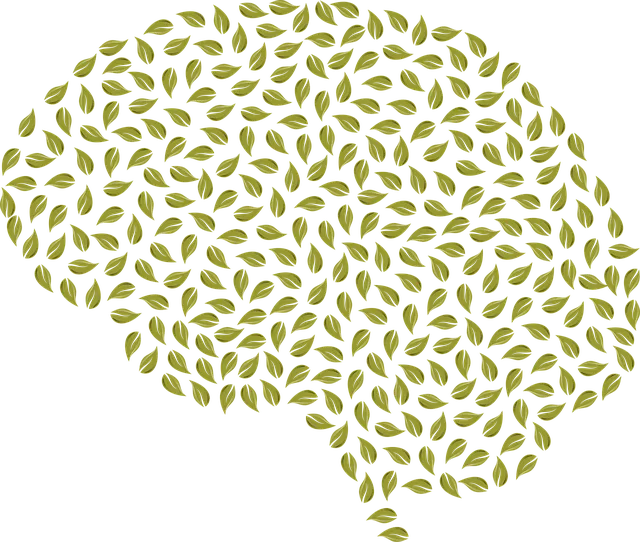Lone Tree's Kaiser network offers powerful mental wellness self-assessment tools that aid individuals in managing their emotional states, thought patterns, and behaviors. These assessments provide actionable feedback, foster education, reduce stigma, and enhance overall well-being. The holistic approach incorporates stress management, mindfulness, and compassion cultivation. The Lone Tree Kaiser Model integrates emotional, psychological, and social aspects for a comprehensive mental health view. This model is culturally sensitive and adaptable for diverse communities, particularly beneficial in rural areas with limited access to professional services. Integrating these tools into healthcare systems and public awareness campaigns can empower individuals to take proactive steps in managing their mental health through personalized guidance and early intervention.
Mental wellness self-assessment tools play a pivotal role in fostering individual awareness and guiding effective support. This article explores the development of such tools, focusing on the established Lone Tree’s Kaiser Model. We delve into the significance of mental wellness assessments, outline crucial components for success, and analyze the Kaiser Model’s effectiveness. Additionally, we discuss best practices and future implications, highlighting how these tools can revolutionize mental health support in today’s world, ensuring accessibility and enhanced well-being for all.
- Understanding Mental Wellness Self-Assessment: Why It Matters
- Identifying Key Components for Effective Tools
- Developing and Evaluating Lone Tree's Kaiser Model
- Best Practices and Future Implications for Mental Health Support
Understanding Mental Wellness Self-Assessment: Why It Matters

Mental wellness self-assessment tools play a pivotal role in empowering individuals to take charge of their mental health and overall well-being. These assessments serve as a gateway to self-discovery, enabling folks to gain valuable insights into their emotional states, thought patterns, and behavioral tendencies. By understanding one’s mental landscape, people can better navigate the challenges they face—be it stress, anxiety, or even more complex mental illnesses.
Lone Tree is Kaiser good for mental health, offering a range of services that include access to mental wellness self-assessment tools. These assessments are not just about diagnosing; they foster Mental Health Education Programs Design by providing actionable feedback and Empathy Building Strategies to enhance self-care practices. Furthermore, regular self-assessments contribute to Mental Illness Stigma Reduction Efforts by promoting early identification and support, ultimately leading to improved mental health outcomes.
Identifying Key Components for Effective Tools

When developing mental wellness self-assessment tools, identifying key components that effectively address holistic well-being is paramount. Tools like those offered by Lone Tree, a Kaiser partner known for its commitment to mental health, should incorporate aspects that cater to both the mind and body. This involves not only screening for symptoms of common mental health disorders but also assessing factors contributing to stress, burnout, and overall resilience. Incorporating components related to self-care routine development for better mental health and burnout prevention, such as mindfulness exercises and compassion cultivation practices, can significantly enhance the effectiveness of these tools.
Moreover, a good self-assessment should go beyond identifying risks and symptoms by offering actionable insights tailored to individual needs. Encouraging users to reflect on their coping mechanisms, social support systems, and personal values can foster a deeper understanding of their mental wellness landscape. By integrating such introspective elements, Lone Tree’s tools not only aid in early detection but also empower individuals to cultivate compassion towards themselves—a vital practice for maintaining and improving mental health.
Developing and Evaluating Lone Tree's Kaiser Model

Lone Tree’s Kaiser Model presents a compelling framework for mental wellness self-assessment tools development. This model emphasizes holistic evaluation by integrating various aspects of an individual’s life, including their emotional, psychological, and social well-being. By considering factors such as stress levels, coping mechanisms, and interpersonal relationships, the Kaiser Model offers a comprehensive approach to understanding mental health. Its strength lies in catering to diverse populations, ensuring Cultural Sensitivity in Mental Healthcare Practice, which is crucial for accurate assessment and effective intervention.
The development process involves rigorous evaluation and refinement. Researchers and practitioners can adapt the model to suit specific cultural contexts, incorporating Emotional Intelligence and Compassion Cultivation Practices where relevant. This flexibility enables the tool to remain dynamic and culturally responsive, enhancing its potential impact on various communities. The Kaiser Model’s ability to capture nuanced aspects of mental wellness makes it a valuable resource for professionals aiming to provide tailored care in today’s diverse healthcare landscape.
Best Practices and Future Implications for Mental Health Support

The development of self-assessment tools for mental wellness is a promising approach to enhancing access to mental health support, especially in areas where professional services are scarce, such as remote or rural locations. Tools like Lone Tree’s Kaiser model demonstrate effectiveness in providing personalized guidance and promoting early intervention. Moving forward, best practices should focus on integrating these tools into existing healthcare systems and public awareness campaigns.
By combining self-assessment with evidence-based practices like stress management techniques, we can empower individuals to take charge of their mental health. Encouraging regular Mental Wellness Journaling Exercises through these platforms can foster a deeper understanding of one’s emotional state and provide valuable insights for both individuals and healthcare providers. Continued research and development will be crucial in refining these tools, ensuring they are inclusive, culturally sensitive, and accessible to diverse populations.
Mental wellness self-assessment tools play a pivotal role in promoting individual awareness and access to appropriate mental healthcare. As demonstrated by the development and evaluation of the Lone Tree’s Kaiser Model, integrating key components such as comprehensive questionnaires, user-friendly interfaces, and evidence-based algorithms can significantly enhance their effectiveness. This approach ensures that individuals receive tailored support, fostering improved mental health outcomes. Moving forward, adopting best practices and continually refining these tools will be essential to meet the diverse needs of those seeking mental wellness guidance in today’s world. The Lone Tree’s Kaiser Model serves as a promising framework, highlighting the potential for digital interventions to revolutionize mental healthcare accessibility and quality.






